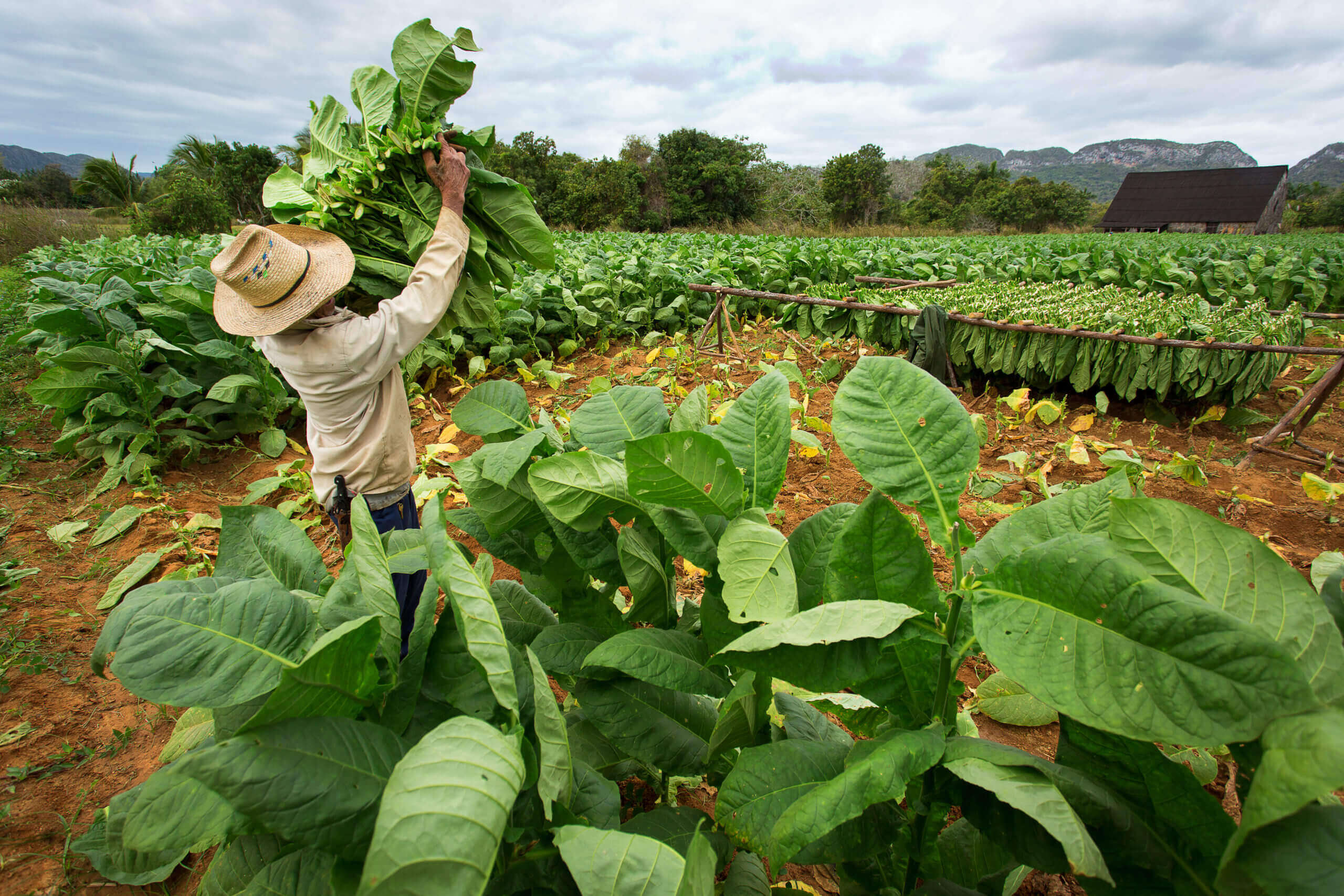
As the global community commemorates World No Tobacco Day, the plight of black tobacco farmers in South Africa is coming to the forefront. With the country’s booming illicit tobacco industry and detrimental legislation, these farmers are facing a grim reality. The lack of viable markets and economic viability has pushed them to abandon tobacco production and seek alternative income sources such as soybeans, sugar beans, and cabbages. This article sheds light on the challenges faced by black tobacco farmers and the initiatives taken to support their transition to sustainable agriculture.
Diminishing Numbers and Economic Pressures: The number of black tobacco farmers in South Africa has dwindled drastically, with only 10 remaining in Mzansi. Previously, there were nearly 300 farmers involved in tobacco production. The illicit tobacco industry’s growth and destructive legislation have contributed to the demise of black tobacco farming in the country. Without markets to purchase their tobacco leaves, farmers from various regions have resorted to clearing out their tobacco fields. Even commercial farmers are abandoning the industry due to the lack of economic viability.
Forced Transition to Alternative Crops: Shadrack Sibisi, a former tobacco farmer in Mpumalanga, shares his story of transitioning to soybean farming. The circumstances left him and other farmers with no choice but to abandon tobacco production. While the switch to soybeans has provided a steady market, challenges such as natural disasters and the absence of mechanization for harvesting persist. Despite the difficulties, farmers like Sibisi are eager to return to tobacco farming if the market conditions improve.
Bleak Outlook for the Tobacco Industry: The tobacco industry in South Africa has suffered severe setbacks, largely due to the illicit tobacco trade that gained momentum during the COVID-19 lockdown when cigarette sales were banned. Before the lockdown, the illicit trade accounted for a significant portion of the market, but it now represents 70% of locally consumed cigarettes. This growth has negatively impacted the legal tobacco industry and subsequently affected the farmers, as the demand for tobacco has declined. Additionally, stringent regulations in the government’s tobacco bill pose further threats to the industry’s survival.
Seeking Alternative Economic Opportunities: Efforts are underway to support smallholder tobacco farmers in finding alternative income sources. The South Africa Tobacco Transformation Alliance, in collaboration with the South Africa Israel Chamber of Commerce, is providing financial and non-financial support to these farmers. Training programs on advanced agricultural techniques for high-end crops such as soybeans and blueberries are being conducted, with the aim of exporting these products to Israel and selling them in local markets. These initiatives aim to prevent the emerging black farmers, who have long depended on the tobacco industry, from being left without sustainable livelihoods.
Advocacy for Sustainable Crops: On World No Tobacco Day, global health organizations, including the World Health Organisation (WHO), are emphasizing the need for sustainable crop production. This year’s campaign theme, “We need food, not tobacco,” aims to raise awareness about alternative crop opportunities and highlight the tobacco industry’s interference in efforts to promote sustainable agriculture. The campaign calls upon governments and policymakers to enact legislation, develop suitable policies and strategies, and create favorable market conditions that enable tobacco farmers to transition to growing nutritious crops, ensuring a better life for themselves and their families.
The struggles faced by black tobacco farmers in South Africa highlight the urgent need for support and a transition to alternative agricultural practices. The illicit tobacco trade, restrictive legislation, and changing global health campaigns have significantly impacted the tobacco industry and the livelihoods of farmers. However, initiatives focused on diversifying crops, training farmers in advanced techniques, and advocating for sustainable agriculture offer hope for a brighter future. By empowering tobacco farmers to embrace alternative income sources, South Africa can pave the way for a more resilient and prosperous agricultural sector.
Stay updated with the latest farming tips and agriculture industry news from Africa by subscribing to our newsletter. Don’t miss out on valuable insights and updates. Follow us on Twitter, LinkedIn, and Facebook to join our farming community and stay connected with us.



















Leave a Reply